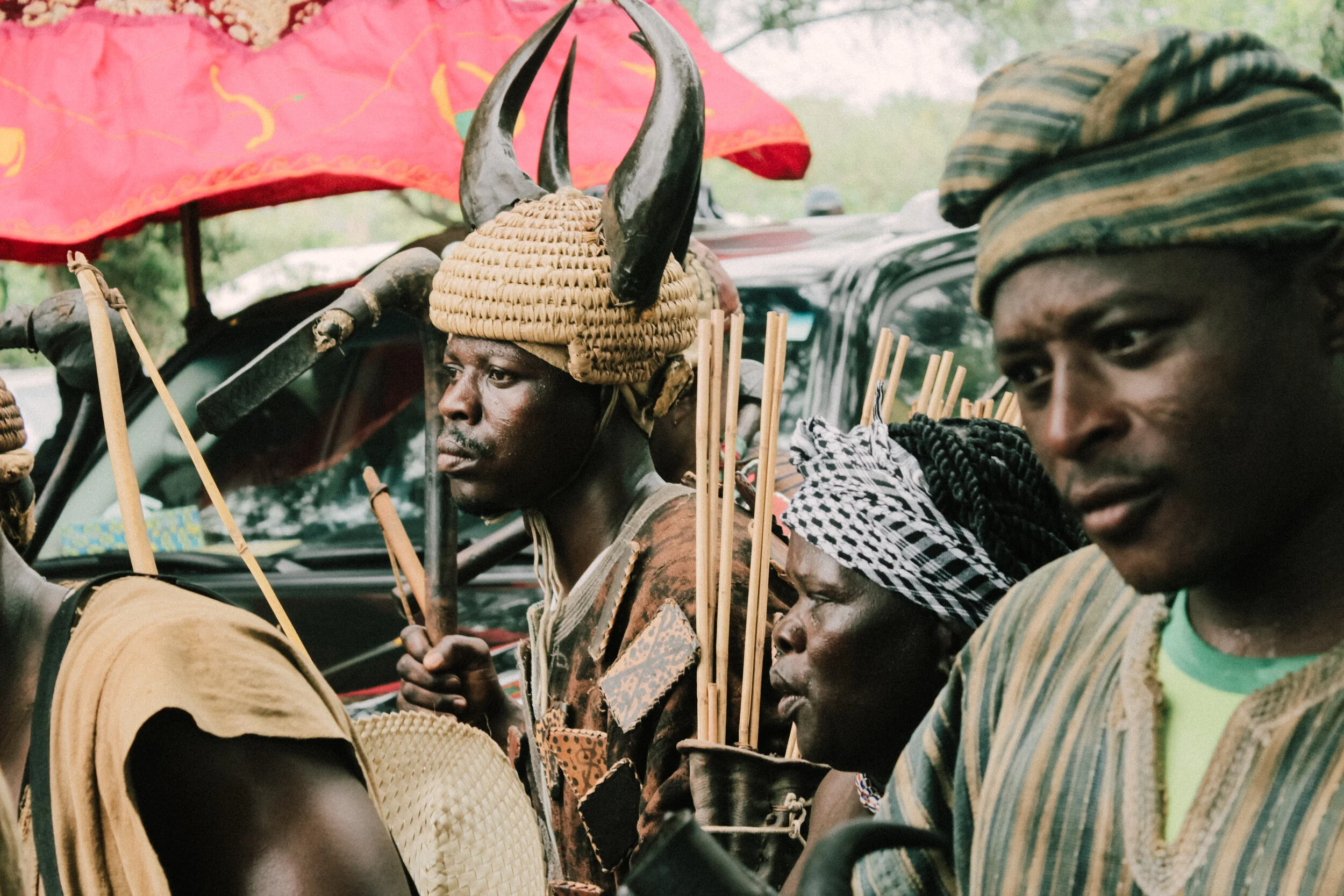Pictures help us understand history and culture. Photographer Francis Kokoroko, who facilitates the Lensational Ghana workshops, explained the importance of photography in documenting history to the six young women and girls who joined our training programme in Ho in 2016:
“How are you documenting your own people? You are recording history for the next generation. Photography empowers you; it makes you more intelligent because you look at your surroundings differently.”
In September 2017, we used the occasion of the annual Yam Festival in Ho in the Volta Region for an outing, and an opportunity to practise the skills the young photographers had learnt so far.
The Yam Festival is one of many cultural celebrations taking place all over Ghana throughout the year. Such events often celebrate harvests and agriculturally and culturally important commodities. Yam is a root vegetable, and one of the main staple crops in West African, and in Ghana, as in other neighbouring countries, it is eaten cooked, boiled, or fried. Boiled yam that is pounded is called fufu, and traditionally eaten with soup.
“Why is the Yam Festival being celebrated?” was what we asked ourselves before we started our photographic exploration. Felicia, 14, said that many stories were circulating about the origins of the Asogli Yam Festival that takes place in Ho every September.
For the Lensational students, the Ho Yam Festival was an opportunity to rediscover their city’s and country’s history, as well as to document it through photography.
Our challenge for the day was thus to find out why the cultivation of yam is being celebrated, and to document the festival for future generations.
One story we heard, was that the cultivation of yam among the people of Asogli started when a hunter found the tuber in the forest. He hid it, and when he returned, it had grown much bigger.
The Festival is also an occasion to thank God for the harvest and to offer prayers for good health and prosperity. It is said that the celebration originated in Togo and was brought into Ghana by the Ewe people.
The event was a rich cultural display. History was celebrated in a colourful street parade of Chiefs and Queen mothers and their people, moving through the streets of Ho, the capital of the Volta Region. It ended with a Grand Durbar at Ho’s Jubilee Park, with drumming and dancing. Neighbouring tribes also joined the festivities.
The broad variety of traditional Kente cloth was an explosion of colours. It invited locals and visitors alike to discover the rich Ghanaian culture that is kept alive through festivities such as the Yam Festival.
Photographers indeed play their part in keeping history alive. The feelings related to cultural celebration, gratitude for the harvest and nature, importance of chieftancy and religiosity, are what our photography students captured and brought to life.
The girls definitely lived the moment with their subjects; they even got so absorbed by the experience, that they stopped the parade for a moment when they photographed a Queen mother. They were forgiven, as they were by far the youngest, and almost the only female photographers documenting the event.
I was reminded of a quote by Magnum photographer David Alan Harvey: “Don’t shoot what it looks like. Shoot what it feels like.” Their photographs invite us on a visual journey through the Asogli Yam Festival — as told by them.
For almost two years now, Lensational has been working with these six young women and girls, aged 14 to 26, to offer them an extra-educational activity that they would otherwise not have access to.
It has been very exciting to see the girls’ enthusiasm for their newly discovered medium, especially as the photography scene in Ghana is still very male dominated.
We are grateful to receive the continued support of Francis Kokoroko in this journey towards what might become the new generation of female photographers.
You can purchase the photographs in this essay on our gallery. The revenues will go back to the photographer, and to Lensational’s training programmes in Ghana.









Text by Juliane Reissig
Photographs by Antoinette Dumegah, Bernadette Young, Felicia Donkor, and Florence Ama Geyevu in Ho, Ghana.
The story first appeared on Lensational’s Medium blog.
— — —
In Ghana, Lensational is collaborating with photographer Francis Kokoroko, and KickStart Ghana, a UK and Ghanaian registered charity/NGO based in Ho, that works to enhance educational opportunities for Ghanaians. Lensational has been working with eight young women, some of whose work is showed in this essay, since October 2016. This programme has been managed by Juliane Reissig.
Lensational’s joint mission with KickStart Ghana is to offer photography workshops as an extra-curricular education opportunity, to enable its female students to tell their own stories through photography, and ultimately, to encourage them to stay committed to their educational aspirations.
